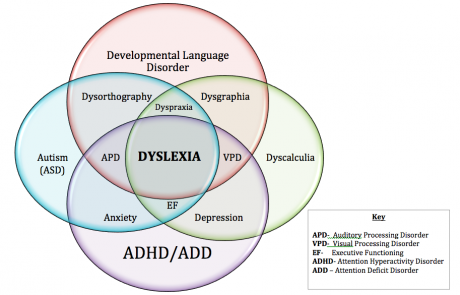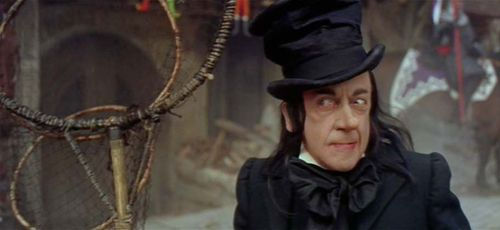Words can put a spell on you...
- robertshawedco
- Jan 14, 2022
- 6 min read

Some words are incredibly powerful, they can change lives for the better or worse. One phrase that I frequently hear is particularly destructive and debilitating, namely "Dyslexia is genetic" or "ADHD is genetic", and therefore there is nothing that can be done for a person with that diagnosis.
This is inaccurate in a number of ways, and with a better understanding comes a more hopeful approach, better science and better outcomes.
Dyslexia the word was coined by a German Professor called Rudolph Berlin in 1883. He had noticed some of his patients had trouble reading even though their eyes were in good working order. He did not know what caused this, he just described the symptoms, and so Dyslexia was first used as an adjective.
This may seem like a trivial point, but it is not, here lies the power of words.
Dyslexia the adjective is helpful, it pointed out there were people who needed help to read, and these people were not unintelligent or just lazy.
What happened is that the adjective 'dyslexic' became the noun 'dyslexia', and so became a 'thing' an entity, a condition. This is a common mistake, people create terms and in the process create a chimera, a being that doesn't exist.

Dyslexic people display difficulty reading, but this does not mean they have a real condition called 'dyslexia' in any meaningful sense. We've just made a label and applied it.
Take the word 'Pisces', which has been used to explain personality for centuries. Ask someone to say what a Pisces is like, they can tell you what month they were born and will then invariably become less specific about the details. The word Pisces means different things to different people, it is not well defined and can be an unwanted distraction.
So with Dyslexia, everyone agrees it denotes people who can't read, then confusion follows about what, exactly, this means.
This quote from John Stuart Mill sums the problem up, just because we create a word, does not mean there is a well defined reality to which it relates.
“The tendency has always been strong to believe that whatever received a name must be an entity or being, having an independent existence of its own".
This is not to say that some people experience difficulty reading, they clearly do, it is also not to say that dyslexic isn't a useful term, it is. The point is we should use terms as much as they are helpful, and drop them when they're not. We should look to extend our language and understanding when we reach our limits. Dyslexia is a useful stepping stone on our journey of understanding, but if we insist on taking it with us it becomes a dead weight.
Dyslexia is best used as an umbrella term for a range of conditions that impact on reading and writing, under that umbrella are tangible aspects of the reading process, sometimes our eyes need entraining, sometimes our ears, sometimes a part of the brain that links the speech centre to the back of the brain is dormant. Not everyone with dyslexia has the exact same symptoms, and this complication is exacerbated by co-morbidity, where two (or more) conditions present together.

The fact Dyslexia frequently occurs with other conditions should also cause us to think harder about the term. Dyslexia and Dyspraxia, for example, very frequently present together and this is because they share some mechanisms in common, these mechanisms are the nouns, the real stuff, and we should always be mindful of the fact that our terminology can put a spell on us and limit our focus to what we think we already know.
This is called selective attention, and here is a famous example you might like to try for yourself.
We often miss very obvious things when are frame of reference is too narrow.
Having looked at the nature of the word dyslexia, and how it started as an adjective but became a noun, we'll now look at the term 'genetic'.
When people say "Dyslexia is genetic" they are asserting the belief that the condition is hard-wired into somebody's make-up, and there is nothing you can do. A counsel of despair.
But even in these terms, this is wrong, Dyslexia is not genetic.
Identical twins have exactly the same DNA, so if one twin had dyslexia the other one must, because in this view the genes determine the outcome. Unfortunately for people who believe this, but happily for everyone else, this is not the case. If one twin has dyslexia then the other is very likely to (about 70% likelihood) but not all genetically identical twins are both dyslexic. Therefore dyslexia is not genetically determined, certainly genes play a role, but there is more going on that just...
"Sorry mate that's just the way you're made, nothing I can do to help".
I'm not trying to deny the importance of genetics! Rather I'm trying to explore the boundary between what we can change and what we can't. A poor definition of dyslexia might stop people from even trying, what's the point if its all decided by DNA? The good news is it is not completely determined by genetics, some things can and do change.
A father with Dyslexia has about a 40% chance of passing down the condition to their son, and father to son heritability is an important factor. However as biologists have come to understand the mechanisms of life in more detail they have discovered, not for the first time, that what we thought we knew was wrong. There are some very powerful vested interests at play, but unequivocally, pure genetic determinism is wrong.

Why does this matter to teachers? Because it means the dyslexic child is not stuck with a condition for life, unless we believe they are, and do nothing to help them! This self-fulfilling prophecy of doom and gloom is implicit in the statement "Dyslexia is genetic". This is the spell we need to break.
Biologists used to believe we are determined by our genes, this idea was made famous by Richard Dawkins book the Selfish Gene. This idea, that chimes so well with our capitalist economic model, has become almost a dogma, with some people unwilling to change their beliefs despite the evidence. Sometimes scientists are people first and scientists second, and pride makes people stick to what they thought they knew.
In 2008 a debate chaired by Dawkins' old PhD tutor at Oxford, Professor Denis Noble, the Selfish Gene hypothesis was challenged by the famous advocate of co-operation in nature, Lynn Margulis of M.I.T. The debate is available online and got so heated parts of it are not suitable for children.
Dawkins assertion that an organism is determined by the genes of its parents was comprehensively disproved using the example of sea-slugs. Some of these creatures have developed the ability to photosynthesise and make food out of sunlight. Sea-slugs simply absorbed the ability to do this from sea-weed, it changed their DNA. This destroys Dawkins' central argument that genes are selfish. Sometimes they are very co-operative and Margulis work shows this in a number of different ways. Nature is not just a struggle to the death, very often nature is co-operative in ways that make no sense if genes are selfish. It seems the dominant economic theories of our age have polluted the science.
In Denis Noble's book "The Music of Life" - see the books section of the website - he points out a number of ways in which genes do not determine how life works.
My favourite example is the butterfly. With exactly the same genes this amazing creature is able to transform from a caterpillar into a completely new body shape and way of life. The metamorphosis of butterflies, and other insects, demonstrates how a single set of genes can be repurposed. In the cocoon the caterpillar is dissolved, a kind of soup is created, and structures called imaginal cells start putting the butterfly together.
So our DNA is not a blue-print that determines every aspect of our being, different genes may be switched on and off by environmental or other factors. The DNA in every cell is more like a set of moulds, out of which different 'lego-bricks' can be made, and these are used to create a range of structures. Interestingly if the DNA is removed from a cell it will continue to function normally, however, it won't be able to make new structures when the old ones need replacing.
All this is to say we do not yet know where the line is drawn between those aspects of ourselves that are genetically determined, and those which we can influence. For example Down's Syndrome is one of only a very few conditions that are genetically determined. Everything else is due to environment. Even well known genetic links, like those with breast cancer, are not always reliable. Women with the breast cancer gene can live their whole lives free of cancer, women without the gene can get breast cancer. Environmental triggers, most noticeably stress, play a significant role. This has political and cultural implications that are unwelcome to some.
In terms of dyslexia we can entrain those parts of the brain associated with reading to function better, this may be a matter of gene expression, it is definitely a matter of physiology. Dyslexia means a problem with reading, it is not Alexia which is the complete inability to read, which can occur due to brain damage. Dyslexia should not be a life-sentence, leaving people to struggle with reading indefinitely.
On the contrary we should focus all our attention on working out what isn't genetically determined, what we can change, and changing it. This is what Neuro-Developmental Programs do, they offer a way out of a hopeless situation that was created by careless use of language and the lazy over application of out-dated ideas.
This, for me, is why I hate the phrase, "Dyslexia is genetic".


Comments